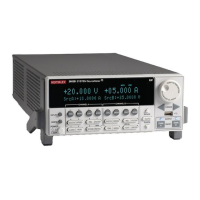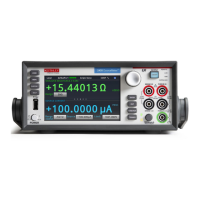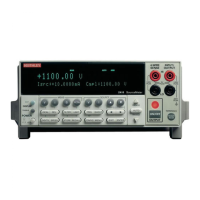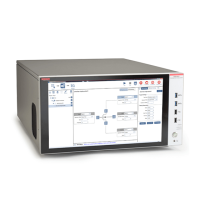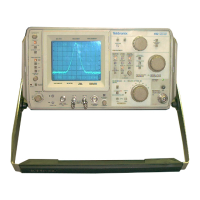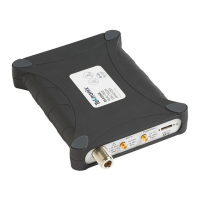Model 2601B-PULSE System SourceMeter Instrument Reference Manual Section 11: TSP command reference
2601B-PULSE-901-01A April 2020 11-179
smua.buffer.recalculatestats()
This function recalculates the statistics of the specified reading buffer.
Usage
smua.buffer.recalculatestats(bufferVar)
The reading buffer to process
Details
This function causes the SMU to regenerate the reading buffer statistics about the specified reading
buffer. Because the SMU automatically updates reading buffer statistics when data is added to the
reading buffer, this function is generally not needed. When the reading buffer is configured to wrap
around and overwrite older data with new data, the buffer statistics will include the data that was
overwritten. Use this function to recalculate the statistics that include only the data that is presently
stored in the buffer.
Example
smua.buffer.recalculatestats(smua.nvbuffer1)
Recalculates the statistics of buffer smua.nvbuffer1.
Also see
bufferVar.fillmode (on page 11-25)
smua.buffer.getstats() (on page 11-177)
smua.cal.adjustdate
This attribute stores the date of the last calibration adjustment.
Initially set to factory
calibration date
Usage
adjustDate = smua.cal.adjustdate
smua.cal.adjustdate = adjustDate
Date of the last adjustment
Details
This attribute stores the adjustment date associated with the active calibration set. The adjustment
date can be read at any time but can only be assigned a new value when calibration has been
enabled with the smua.cal.unlock() function.
You cannot change the adjustment date without first making a change to the calibration constants.
Once you change any calibration constants, you must set the adjustment date before you can save
the calibration data to the nonvolatile memory of the SMU.
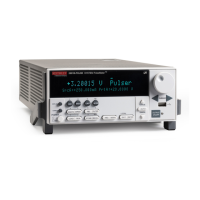
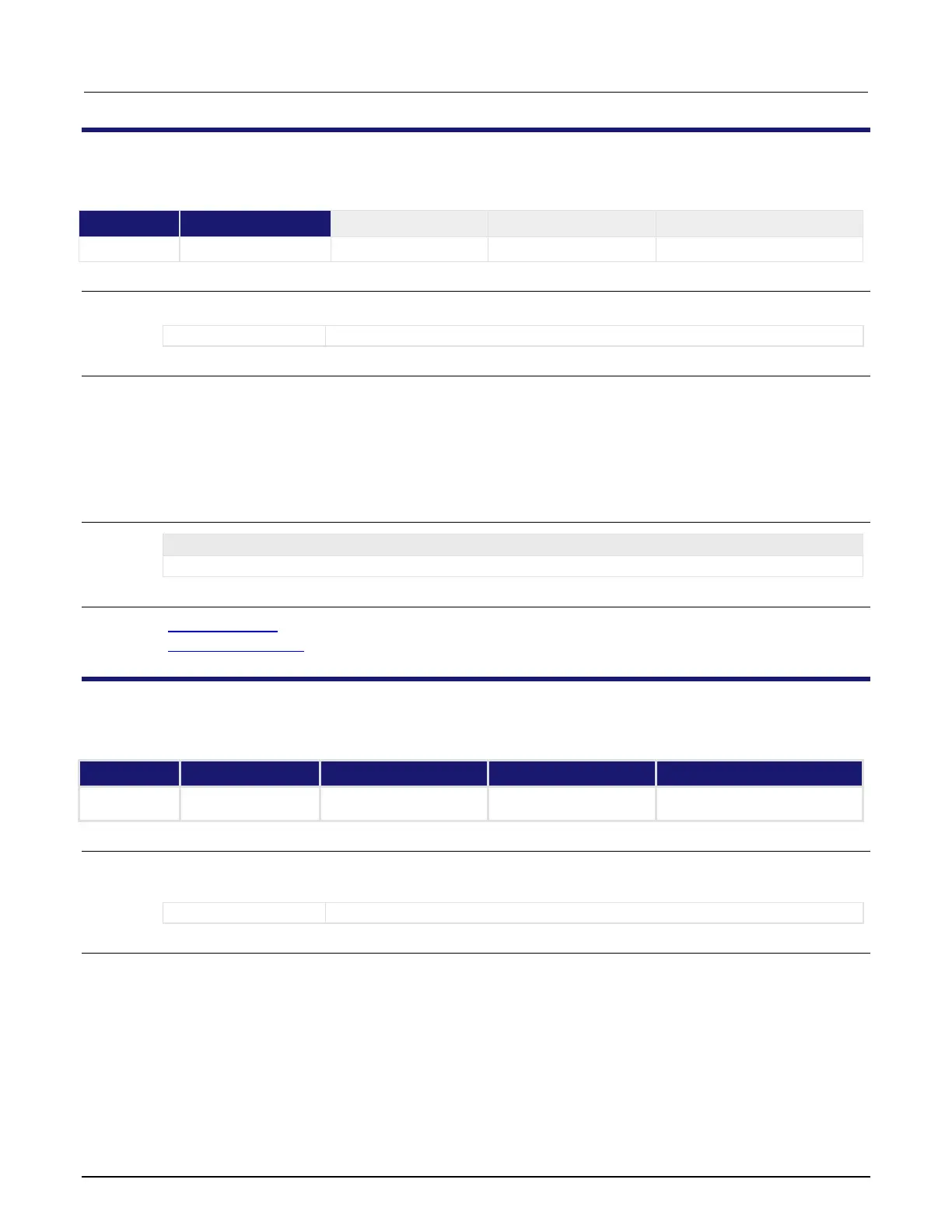